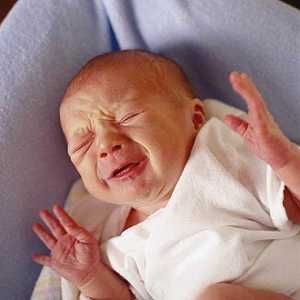Infantile convulsion affects intellectual development
Convulsion can cause both temporary brain dysfunction and irreversible brain lesions. One convulsion has a temporary impact on the near memory, which is equivalent to the damage caused by concussion, while the state of convulsion can cause serious brain damage, resulting in mental decline, epilepsy, localized brain dysfunction and other symptoms.
Children with convulsions lasting more than 30 minutes can produce ischemic lesions of brain neurons. Severe convulsion has a great impact on the development of children's brain, especially in children aged 6 months to 4 years old. The brain is in the stage of continuous development and perfection, and convulsion has the greatest damage to the brain. Chronic persistent sequelae caused by severe convulsions include mental retardation, paralysis, epilepsy and mild brain dysfunction syndrome. Mild brain dysfunction syndrome is characterized by excitement, abnormal behavior, inattention, emotional disorder, sensory abnormality, language delay, learning difficulties, etc. Therefore, infantile convulsion must be controlled, and long-term medication must be taken to prevent convulsion recurrence.
The causes of persistent convulsion include: ① intracranial diseases, such as epilepsy, tumor, brain injury, brain malformation, etc.; ② Hyperpyretic convulsion; ③ Infection: including intracranial infection caused by bacteria, viruses, protozoa, parasites and any sudden high fever extracranial infection; ④ Hypoxic diseases: including asphyxia, respiratory and circulatory diseases, carbon monoxide poisoning, etc.; ⑤ Metabolic disorders: including water poisoning, hypernatremia, hypoglycemia, hypocalcemia, hypomagnesemia, alkalosis, dyssecretion of antidiuretic hormone, genetic metabolic defects, etc.; ⑥ Poisoning: including drug poisoning, food poisoning, heavy metal poisoning, pesticide poisoning, etc.
The most effective drug should be selected to control convulsion when convulsion occurs. Under no circumstances should convulsion last more than 20 minutes. Even if it is only mild and local convulsion, it should be controlled in time. The most important measure to prevent brain injury is to control convulsions in time and prevent convulsions from continuing. The most effective anticonvulsant drug is diazepam; We should also take anti hypoxia measures, strengthen nursing, keep respiratory tract unobstructed, inhale sputum, give oxygen, and intubate trachea and give artificial respiration when necessary; It is also necessary to deal with high fever, hypoglycemia, brain edema and other conditions symptomatically. After the convulsion is controlled, it is necessary to actively search for the cause, determine which of the following diseases is through clinical symptoms and laboratory tests, take corresponding measures to treat, and eliminate the cause is the key to prevent recurrent convulsions.
(Liu Chao, Child Health Department, Jinan Maternal and Child Health Hospital)
 Learn about parenting knowledge, watch parenting blogs and forums, and go to the parent-child channel baby.sina.cn
Learn about parenting knowledge, watch parenting blogs and forums, and go to the parent-child channel baby.sina.cn

![]()









